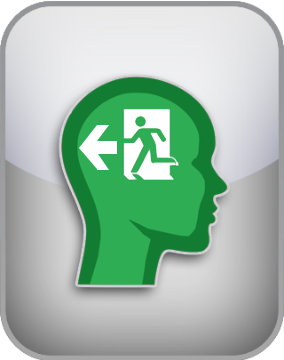Academically reviewed by Dr. Sabina Alispahić, Ph.D., professor of psychology
Shyness Test
Shyness is the tendency to feel awkward, tensed, or worried during social interactions, especially with new or unfamiliar people. Shyness may also result from social anxiety, an (imagined) lack of social skills, or low self-esteem.
This assessment will determine your level of shyness based on a well-known scientific questionnaire written by communications professor Dr. James McCroskey.
Are you shy? For each of the following statements, indicate your level of agreement below.
Question 1 of 17
I don't talk much.
| Disagree | Agree |
NEXT
The IDRlabs Shyness Test (IDR-ST©) was developed by and is the exclusive property of IDRlabs International. The IDR-ST was informed by the work of communications researcher and professor Dr. James McCroskey. The present test is not associated with any professionals or professional bodies affiliated with this written work.
The test provides feedback such as the following:
Not Shy: Shyness is a tendency to feel awkward, tensed, or worried during social interactions, especially with new or unfamiliar people. This emotion often affects how a person behaves around others. Your score indicates that you do not experience shyness. You are unlikely to feel nervous, timid, insecure, or uncomfortable around numerous or unfamiliar people. To exhibit physical sensations such as blushing, speechlessness, or shakiness is also unlikely. Though you might prefer to be around those you know well or to avoid unfamiliar situations, you find it difficult to relate to the degree that some people feel uncomfortable or bashful around others. In the absence of shy symptomatology, you do not need to limit your life experiences to only those you can take part in without fear of feeling awkward or tense during social encounters.
Mild Shyness: Your score indicates that you have mild shyness: The feeling of apprehension, insecurity, or awkwardness when around others. Like many people, you have mild shy tendencies; however, they are not severe enough to be considered true shyness. This emotion and associated behavior only occasionally manifest and rarely impact your life. While you do not typically feel uncomfortable around others, you sometimes notice you are behaving timidly or feeling tensed when in a group. Despite this, you can participate in social gatherings, get to know new people, and speak up in a crowd. You would unlikely experience any noticeable signs of anxiety or exhibit a significant emotional response such as apprehension or worry during social encounters.
Moderate Shyness: Your score indicates that you have moderate shyness: The tendency to feel awkward, tensed, or worried during social interactions, especially when around new or unfamiliar people. You may feel uncomfortable participating in group settings, meeting new people, and speaking up in front of others. But you will not experience severe anxiety or panic attacks if this does happen. You could likely experience moderate nervous system arousal from rapid heart rate, blushing, sweaty palms, and shakiness. However, you can generally manage these symptoms and remain reasonably calm and engaged. Though you might prefer to be around those you know well or avoid unfamiliar situations, you can still participate in events that require you to be around others.
Severe Shyness: Shyness is a tendency to feel awkward, tensed, or worried during social interactions, especially with new or unfamiliar people. This emotion often affects how a person behaves around others. Your score indicates that you have severe shyness. You will likely feel nervous, timid, insecure, or uncomfortable around numerous or unfamiliar people. Experiencing physical sensations such as blushing, speechlessness, upset stomach, or shakiness is very likely. Simply thinking about the prospect of a social encounter may be enough to cause you significant discomfort and distress. Your shyness may cause you to withdraw from social situations, avoid communicating with others, or encounter challenges at school or work. If you feel your shyness negatively impacts your daily quality of life, you may want to speak with a certified mental health professional about coping strategies.
As the developers and publishers of this free Shyness Test, we have striven to make this test as reliable and valid as possible by subjecting it to statistical controls and validation. However, free online quizzes like the present one do not provide professional assessments or recommendations; the test is provided entirely “as-is.” For more information about any of our online tests and quizzes, please consult our Terms of Service.

